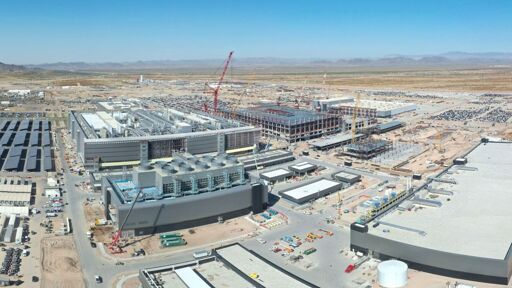“A country with experience in fab construction can build one faster and cheaper than a country with no experience”
Yeah, not really surprising
If you thought GPUs were pricey now. At least the rest of the world can still buy from Taiwan.
Global foundries has a fab nearby, and all they produce are those chips for the old obsolete cars put out by Ford
Not everything has to be latest gen CPUs, there will always be a market for 555 timers and ESP32s
Plus, these have to be automotive grade, which requires a higher tier of durability. Not a lot of profit margin to be made on those sorts of devices.
Except these are the empty headed sensors that trigger the check engine light despite the engine running just fine
A lot of modern cars can appear to be ‘running just fine’ but underneath the covers it’s pulled timing, altered fuel trims, etc. to appear normal and/or avoid damage but the computer stills knows that’s not a normal situation and alerts you to the problem. Unless you hook a scanner up and actually find out what the idiot light I telling you then you can’t be sure if it’s a false positive or not.
Exactly. Modern cars are great at compensating for poor maintenance, but that doesn’t solve the problem.
Maintain your cars properly and they won’t need to compensate like this, meaning you’ll get better fuel economy and largely avoid costly repairs.
Isn’t the check engine light simply a timer and not an actual sensor? Programmed to light at least once a year and at least every 5k miles
The check engine light can trigger for a host of reasons, one of which is routine maintenance like oil (5k miles these days). To know what’s causing it, you need to check the codes.
On most cars, if it blinks when starting up then goes away, it’s time to change the oil. If it stays on, it’s past time and/or there’s another sensor tripping.
Don’t ignore the check engine light. It takes like 30 sec to diagnose at any auto parts store, so just drop by and ask for a free scan if you don’t have a reader or don’t want to take it to a mechanic.
“Capitalism breeds innovation”
Also because we dont have the construction experience of building FAB’s, and we have different building regulation and standards.
25% tariffs on steel also wont make it any cheaper.
deleted by creator
Yes, and with all that combined twice as expensive and twice longer is kinda fine. Provided it will function.
EDIT: Except if ever TSMC Taiwan foundries’ monopoly is no more, this means loss of a very specific kind of shield of Taiwan’s de facto independence, which may cause a lot of interesting developments.
Also because Taiwan has basically slave labor like China. Also things cost more here cuz our workers have benefits and things like rights.
“Right to work”
cuz our workers have benefits and things like rights.
Who is gonna tell this stable genius how US construction actually work?
👀
You saying things like OSHA and fall arrest harnesses and PPE don’t affect construction speed in the US at all?
I am saying that original commenter is talking out of his.
Also, referencing OSHA here shows that you don’t understand how a construction site functions. Sure there is regulations but lax enforcement, extensive usage of suncotnrwctors and less than legal labour makes all of that enforcement merely a theater.
Fun fact: Taiwan doesnt want its workers dying or disabled either
My comment had nothing to do with Taiwan, just the quote that sunzu2 said about how US construction actually works.
1950 wants its tired anti china tropes back
Noting that China has been almost universally hated for 75 years is actually the most anti-China post today, good job.
What rights are these of which you speak?
Those with which you don’t have record suicide rates at workplace, probably, with workers jumping out of windows, the solution to which was to put grids like in prison. Talking of Foxconn.
I get it, people have it hard everywhere, but some have it harder, and between American and Chinese workers the relation is clear.
But America has a higher suicide raterate?
Compared to what? I didn’t name a specific country, but you can pick some and let us compare.
The difference is that Americans want rights destroyed.
What benefits and rights are that supposed to be?
There’s a big cultural difference. Taiwanese workers, like Chinese, Korean, and Japanese workers as well, have a much higher tolerance for long work hours and less pay.
All of these East Asian cultures have long-standing social norms against complaining and refusing to work hard. It’s a collectivist culture of work that puts the success of the company ahead of the individual’s interests. In return, companies tend to be loyal to workers so it’s very common to stay at one company for your whole career.
We westerners used to have similar values back in the 1950s and earlier. That all changed during the counterculture.
All of these East Asian cultures have long-standing social norms against complaining and refusing to work hard.
Pathological Culture of Bootlicking
Disgusting
I live in Korea. How do you define “loyal to workers?”
You are correct, but people always want to believe their enemy’s enemy is their friend, and if their enemy is ideological, then that enemy’s enemy must be their ideological friend, and same with morality. That’s never so.
“Free trade” means letting everyone do what they’re best at and then exchange the goods they produce. This is so that everybody is focused on what works best in their country, everything is done as well and as cheaply as possible. However this makes no guarantee about any one country’s ability, at the end of the day, to stand alone without dependencies on others for vital goods. In fact if anything it works against that.
I don’t know why Trump talks about globalism as some Democrat thing. It’s his own party that has been driving for free trade since forever.
“Free trade” means big countries dominating smaller ones. In what way can a small Caribbean nation compete with the US for example? Say they have a self sustaining economy. They have farms to feed their people, and textile mills to clothe them. Free trade opens their markets up, and they are quickly overwhelmed by the mega corps and their economies of scale. Now local industry is driven out of business or subsumed by foreign competitors. Maybe tourism? Multinationals buy up all the hotels, beaches and restaurants. Locals get minimum wage jobs serving and cleaning. Any attempt at “protectionism” incurs penalties under the free trade agreements.
“Free trade” means letting everyone do what they’re best at and then exchange the goods they produce
If that were the case there would not be Plaza accords, dismemberment of Angstrom and the absolute annihilation of industry in the post-soviet states. “Free trade” is and always has been a fanciful banner for wealth extraction
Free trade is the best system for 90 % of an economy. I will take a dump on Trump any day, maybe twice , but having a small capacity to build your own silicon chip is mandatory in case of a military conflict. Covid wasn’t a planned military conflict and first world economies couldn’t produce mask, gown… and luckily the virus wasn’t so deadly and only a small % of the population died.
I am Canadian… by any free trade perspective it looks like we should buy our milk from countries with less harsh winter… but then we would be on our knee if an idiot decide to bully us with a duty tax.
There should be free trade for 90 % of a country gdp and elected officials can change their list of excluded 10 % every few years.
Are you saying that 10% of an economy is vital goods and the other 90% is not? Not that I have any numbers on this but 10% seems low to me.
10 % isn’t based on anything but let’s imagine: 2-4 % military 1 % communication infrastructure, media and unbiased information 2-4 % healthcare 2-4 % food. You quickly get to 10%. Too big and you loose the benefit of free trade.
Could you try doing the same with the 90%? if life’s essentials are so easily paid for I am wondering what you think the rest is going to?
I don’t know about the numbers you present, but absolutely agree that some industries are just worth supporting, from a government perspective. Cannot be reliant on a geopolitical enemy for goods that allow your country to continue to function.
I think Trump losing us allies is a travesty, but there’s no guarantee during a global conflict you can get items from said allies.
All abstract ideas are good, and those with less assumptions are more abstract, but the problem is - nobody wants purely abstract ideas.
Pretty Victorian conditions in factories producing all those nice things we have, for example, would not be acceptable in USA.
Which means that this abstract idea is somehow mixed and divided with a border with another abstract idea.
Differently in one place and in another.
OK, I’m using a boring and long way to say that some things have to be balanced. Bad labor conditions allow cheaper production, skewing competitive balance. Tariffs or something like that can in theory balance it out back again.
EDIT: And yes, both globalism and American conservatism and what not are only in appearances divided along party lines, in fact they seem to be evenly split. Like with hedge funds, that’s what makes your two-party system stable.
Trump is a former democrat. Many in his administration are former democrats. Trump isn’t a liberal. Both Republicans and Democrats are liberal. Trump is a nationalist. Trump is not a liberal Republican.
For now.
Yep that 24/7 round-the-clock construction and experience in Taiwan surely would contribute significantly to the difference.





